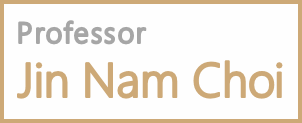29. * Du, J., & Choi, J. N. (2013). Leadership effectiveness in China: The moderating role of change climate. Social Behavior and Personality, 41, 1571-1584.
* Du, J., & Choi, J. N. (2013). Leadership effectiveness in China: The moderating role of change climate. Social Behavior and Personality, 41, 1571-1584.
28. Sy, T., Choi, J. N., & Johnson, S. K. (2013). Reciprocal interactions between group perceptions of leader charisma and group mood through mood contagion. Leadership Quarterly, 24, 463-476.
Sy, T., Choi, J. N., & Johnson, S. K. (2013). Reciprocal interactions between group perceptions of leader charisma and group mood through mood contagion. Leadership Quarterly, 24, 463-476.
27. Gilson, L. L., Lim, H. S., Luciano, M. M., & Choi, J. N. (2013). Unpacking the cross-level effects of tenure diversity, explicit knowledge, and knowledge sharing on individual creativity. Journal of Occupational and Organizational Psychology, 86, 203-222. [Received the JOOP Best Paper Award for 2013]
Gilson, L. L., Lim, H. S., Luciano, M. M., & Choi, J. N. (2013). Unpacking the cross-level effects of tenure diversity, explicit knowledge, and knowledge sharing on individual creativity. Journal of Occupational and Organizational Psychology, 86, 203-222. [Received the JOOP Best Paper Award for 2013]
26. * Du, J., Choi, J. N., & Hashem, F. (2012). Interaction between one’s own and others’ procedural justice perceptions and citizenship behaviors in organizational teams: The moderating role of group identification. Group Dynamics: Theory, Research, and Practice, 16, 289-302.
* Du, J., Choi, J. N., & Hashem, F. (2012). Interaction between one’s own and others’ procedural justice perceptions and citizenship behaviors in organizational teams: The moderating role of group identification. Group Dynamics: Theory, Research, and Practice, 16, 289-302.
25. * Kim, M. J., Choi, J. N., & Park, O. S. (2012). Intuitiveness and creativity in groups: Cross-level interactions between group conflict and individual cognitive styles. Social Behavior and Personality, 40, 1419-1434.
* Kim, M. J., Choi, J. N., & Park, O. S. (2012). Intuitiveness and creativity in groups: Cross-level interactions between group conflict and individual cognitive styles. Social Behavior and Personality, 40, 1419-1434.
24. * Chang, J. W., Hwang, W., & Choi, J. N. (2012). Is task autonomy beneficial for creativity? Prior task experience and self-control as boundary conditions. Social Behavior and Personality, 40, 705-724.
* Chang, J. W., Hwang, W., & Choi, J. N. (2012). Is task autonomy beneficial for creativity? Prior task experience and self-control as boundary conditions. Social Behavior and Personality, 40, 705-724.
23. Choi, J. N. (2012). Context and creativity: The theory of planned behavior as an alternative psychological mechanism. Social Behavior and Personality, 40, 681-692.
Choi, J. N. (2012). Context and creativity: The theory of planned behavior as an alternative psychological mechanism. Social Behavior and Personality, 40, 681-692.
22. *Chang, J. W., Sy, T., & Choi, J. N. (2012). Team emotional intelligence and performance: Interactive dynamics between leaders and members. Small Group Research, 43, 75-104.
* Chang, J. W., Sy, T., & Choi, J. N. (2012). Team emotional intelligence and performance: Interactive dynamics between leaders and members. Small Group Research, 43, 75-104.
21. *Sung, S. Y., Choi, J. N., & Cho, D-S. (2011). Who initiates and who implements? A multi-stage, multi-agent model of organizational innovation. Journal of Management & Organization, 17, 344-363.
* Sung, S. Y., Choi, J. N., & Cho, D-S. (2011). Who initiates and who implements? A multi-stage, multi-agent model of organizational innovation. Journal of Management & Organization, 17, 344-363.
20. *Shin, Y., & Choi, J. N. (2010). What makes a group of good citizens? The role of perceived group-level fit and critical psychological states in organizational teams. Journal of Occupational and Organizational Psychology, 83, 531-552.
* Shin, Y., & Choi, J. N. (2010). What makes a group of good citizens? The role of perceived group-level fit and critical psychological states in organizational teams. Journal of Occupational and Organizational Psychology, 83, 531-552.
